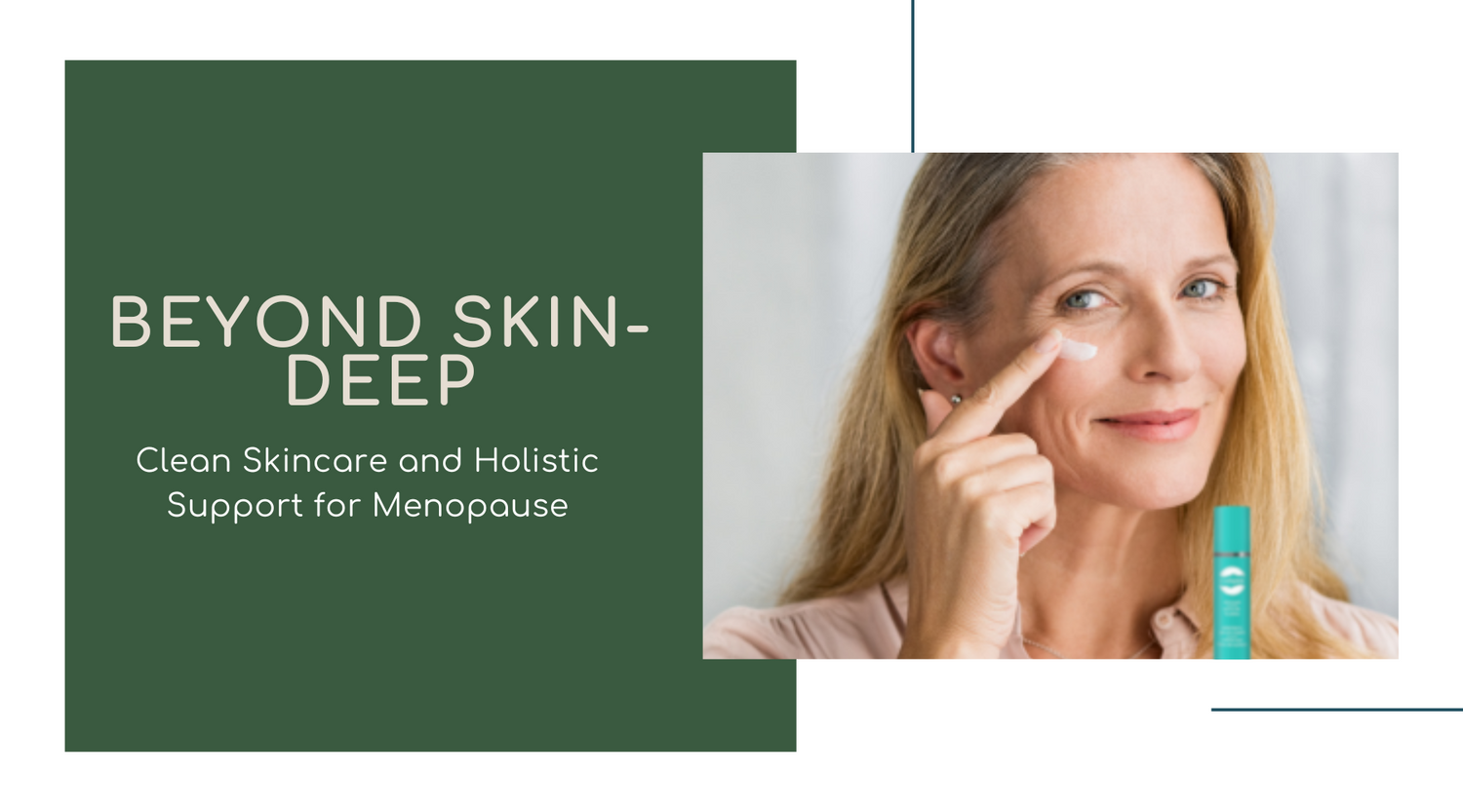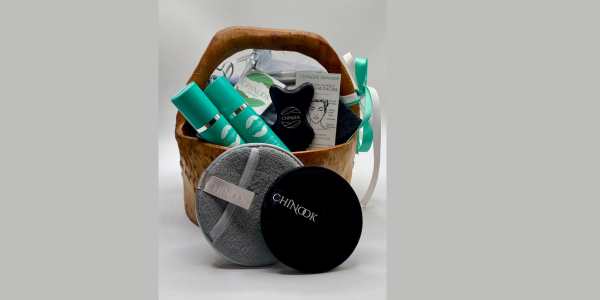
As the seasons change, so do the needs of our skin, requiring thoughtful adjustments to our skincare routines to maintain a healthy and radiant complexion. Embracing seasonal sustainable skincare supports the environment and nurtures your skin with ingredients and practices that align with the unique challenges of different weather conditions.
During the transition from colder to warmer seasons, hydration takes center stage. Opt for sustainable, eco-friendly moisturizers that cater to your skin's hydration needs without compromising ethical practices.
Consider products with plant-based ingredients and minimal packaging, or explore DIY alternatives using natural oils like jojoba or argan oil.
In colder months, when indoor heating can lead to dryness, focus on hydrating masks and gentle exfoliation to remove dead skin cells. As the weather warms, lightweight, water-based moisturizers can provide hydration without feeling heavy on the skin.
Tailoring your skincare routine to the seasons promotes sustainability and ensures your skin receives the care it deserves year-round.
Click here to learn more about chinookskincare.com
Seasonal Skincare: The Key to Sustainable Beauty
When it comes to sustainable skincare, it's important to consider the impact of seasonal changes on our skincare routine. Each season brings challenges for our skin, and by adapting our skincare practices, we can maintain both healthy skin and a healthy planet.
Our skin tends to become drier during winter due to the cold weather and indoor heating. To combat this, opt for moisturizers and serums rich in natural ingredients like shea butter and hyaluronic acid. These ingredients provide intense hydration, help seal in moisture, and protect against harsh environmental conditions.
In the summer, increased sun exposure can lead to skin damage and premature aging. Incorporating sunscreen into your seasonal skincare routine is essential, as it protects your skin against damaging UV rays and sustains the health and sustainability of your skincare regimen.
Incorporating EcoFriendly Practices into Your Skincare Routine
Another important aspect of incorporating eco-friendly practices into your skincare routine is choosing clean and green skincare products. Look for clean beauty brands that prioritize using natural and organic ingredients without harmful chemicals or toxins.
Opting for nontoxic skincare products protects your skin and reduces your environmental impact. Avoid products that contain synthetic fragrances, parabens, sulfates, and other harmful ingredients.
Instead, opt for holistic skincare practices using natural remedies and homemade recipes. DIY beauty treatments can be a fun and creative way to care for your skin while being conscious of the environment.
One way to reduce waste and promote sustainable skincare is by following seasonal skincare tips that prioritize natural ingredients and minimal packaging.
Top Natural Ingredients for Sustainable Skincare
When it comes to sustainable skincare, incorporating natural ingredients is key. These ingredients benefit your skin and contribute to a healthier planet.
One top natural ingredient to incorporate into your skincare routine is aloe vera. Known for its soothing properties, aloe vera can help hydrate and heal the skin, making it perfect for all seasons.
Another great natural ingredient is rosehip oil. Packed with antioxidants and essential fatty acids, rosehip oil can help improve skin elasticity and reduce the appearance of scars and fine lines. It's a wonderful addition to any skincare routine, especially for those seeking seasonal skincare tips or looking to adopt sustainable skincare practices.
Homemade Skincare Recipes for Sustainable Beauty
For those looking to embrace sustainable beauty, creating homemade skincare products is a fantastic way to minimize waste and reduce your carbon footprint. You can control the ingredients and avoid harmful chemicals in conventional skincare products by making your own clean beauty alternatives.
One popular homemade skincare recipe is a DIY face mask using honey, yogurt, and oats. Honey is known for its moisturizing and anti-inflammatory properties, while yogurt gently exfoliates the skin.
Oats help to soothe and calm any irritation or redness. This combination refreshes and rejuvenates your skin and saves packaging waste from disposable face masks.
If you're dealing with dry skin during winter, consider making homemade moisturizers using natural ingredients.
Best Clean Beauty Products for a Sustainable Skincare Regimen
When building a sustainable skincare regimen, it is important to choose clean beauty products that align with your values and promote a healthy environment.
One such product is a natural sunscreen with eco-friendly packaging. This protects your skin from harmful UV rays and minimizes the use of single-use plastics.
Another essential product is an organic facial cleanser made with non-toxic ingredients. Look for cleansers free from harsh chemicals and synthetic fragrances, as these can irritate the skin and negatively affect the environment.
A cruelty-free moisturizer made with natural ingredients is a must-have for sensitive skin. These moisturizers enhance your seasonal skincare routine by providing sustainable benefits and helpful tips for maintaining healthy skin.
Creating an Eco-Friendly Skincare Routine for Different Climates
Adapting your skincare routine to different climates is essential for maintaining healthy and glowing skin. In colder climates, such as during winter, it's important to focus on hydration and nourishment to combat dryness and protect your skin from harsh weather conditions.
Choose skincare products specifically formulated for dry skin, such as a moisturizer enriched with natural oils and hydrating ingredients like hyaluronic acid. These products will help replenish moisture and create a protective barrier against the cold, dry air.
On the other hand, in warmer climates like summer, it's crucial to protect your skin from excessive sun exposure and heat. Incorporate lightweight and non-greasy skincare products into your routine, such as a broad-spectrum sunscreen with a high SPF.
Incorporating seasonal skincare into your routine allows you to adapt to your skin's changing needs and promotes sustainable skincare practices. You can maintain a healthy complexion while minimizing waste by following simple skincare tips tailored to each season.
DIY Beauty Treatments for Sustainable Skincare
When it comes to sustainable skincare, creating your own DIY beauty treatments is not only a fun and creative way to care for your skin but also allows you to minimize waste and support eco-friendly practices. Using seasonal ingredients, you can make the most of nature's offers while avoiding harmful chemicals and unnecessary packaging.
One simple DIY skincare treatment is a homemade face mask. For example, during the summer, you can use fresh fruits like strawberries or cucumbers as the base of your mask. These ingredients are refreshing and hydrating for the skin and packed with antioxidants and vitamins.
Another DIY beauty treatment for sustainable skincare is incorporating seasonal ingredients into your routine.
Key Differences Between Organic and Natural Skincare
When considering skincare practices, it's important to understand the key differences between organic and natural skincare. While these terms are often used interchangeably, they have distinct meanings.
Organic skincare refers to products that are made with ingredients grown without the use of pesticides or synthetic fertilizers.
On the other hand, natural skincare products are made with natural ingredients but may not be certified organic.
When it comes to seasonal skincare, both organic and natural products can be beneficial. However, organic skincare may be more suitable for individuals with sensitive skin, as they are less likely to contain irritants or allergens.
Natural skincare products, on the other hand, provide a perfect solution for those seeking seasonal skincare, as these products are specifically formulated to address your skin's changing needs depending on the time of year.
Identifying Cruelty-Free and Non-toxic Beauty Brands for Sustainable Skincare
Following certain steps or guidelines is important when searching for cruelty-free and non-toxic beauty brands promoting sustainable skincare. Firstly, check for certifications or labels that indicate cruelty-free and non-toxic practices.
Look for logos like Leaping Bunny, PETA's cruelty-free logo, or the Certified Vegan logo. These certifications ensure that the products are not tested on animals and do not contain harmful ingredients.
In addition to certifications, research the brand's sustainability practices. Look for brands that responsibly use eco-friendly packaging, source natural ingredients, and prioritize ethical production methods.
By supporting sustainable skincare practices, individuals can incorporate seasonal skincare tips into their routines for healthier and more environmentally friendly skincare.
Holistic Skincare Remedies for Common Skincare Issues
One common skincare issue is dry skin, especially during the winter season. To address this, incorporating holistic skincare remedies can provide effective relief.
One holistic remedy is using natural oils such as coconut or jojoba oil as a moisturizer. These oils are rich in hydrating properties that can nourish and replenish the skin's moisture barrier.
Another remedy is to exfoliate regularly using a homemade sugar scrub. This gentle exfoliation helps remove dead skin cells and allows moisturizers to penetrate the skin more effectively.
Staying hydrated by drinking plenty of water and incorporating foods rich in omega-3 fatty acids, like salmon or chia seeds, can promote healthier and more hydrated skin. By adopting these holistic skincare practices, individuals can combat dry skin and achieve a more radiant complexion.
Sustainable Morning Skincare Routines: Eco-Friendly Tips for Radiant Skin
Create a Sustainable Facial Skincare Routine Expert Tips and Advice





